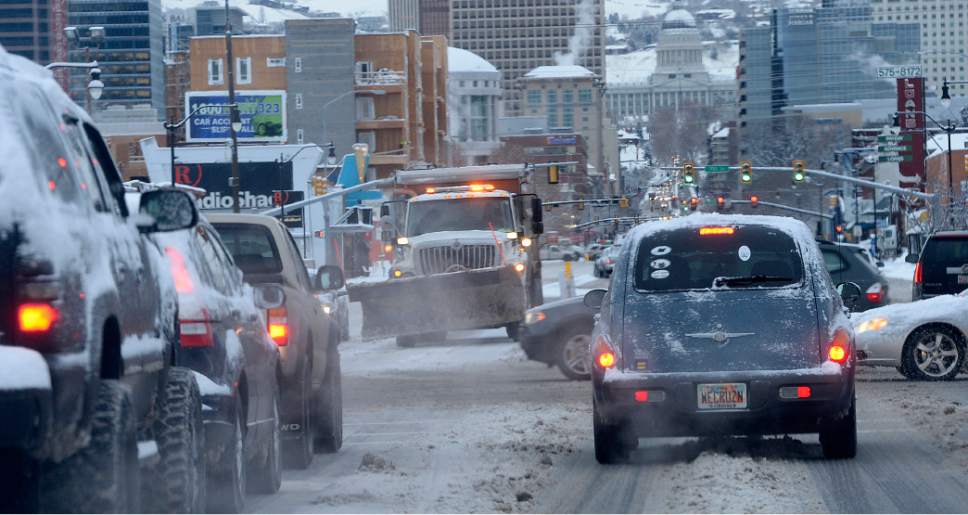This is an archived article that was published on sltrib.com in 2017, and information in the article may be outdated. It is provided only for personal research purposes and may not be reprinted.
As the battered pavement bears new scars from another punishing winter, Salt Lake City's council members are considering a funding bump that would smooth its streets.
Modeling from a 2012 road survey suggests two-thirds of the city's 1,800-plus miles of roadways are in poor to very poor condition.
"Our infrastructure has been neglected for a long time," said council member Charlie Luke after Tuesday's meeting. "The overall cost to really tackle the issue is big."
An earlier work session included a briefing on funding options to help meet the growing need: bonding, tax increases and a transportation utility fee.
Historically low interest rates make bonding an attractive — if not always popular — option.
Transportation utility fees would be assessed through a regular bill like any other utility, but those alone "don't realistically begin to cover our gap," said Stan Penfold, council chairman.
"But we should know what that looks like," he added, "because it could be a part of our solution."
Provo is among a handful of Utah cities that impose a transportation utility fee, and council members voted by straw poll for further study of its potential benefit.
The notion of a tax increase had less support. Penfold rejected a council staffer's suggestion that they discuss their willingness to support an increase at the early stage; Luke referenced a previous bad experience.
Funding for street maintenance and reconstruction was a victim of budget cutbacks during the Great Recession.
The council three years ago raised nearly $5 million in property taxes to repair the city's roads after overriding a veto from then-Mayor Ralph Becker. But Becker used the money to give employees raises instead.
Luke said he was "very, very supportive" of that increase, but he won't support another until he has a guarantee that the money will be used on streets.
"We got played," Luke said. "It was a brilliant move on the administration's part, and I'm not going to do it again."
Luke said Mayor Jackie Biskupski, at least, seems to share an interest in improving the city's roadways.
Biskupski's first proposed streets budget included an increase of $200,000, to $9.8 million, with nearly $8 million in state funding earmarked for upgrades.
But about 80 percent of general-fund contributions to the city's Capital Improvement Program will be needed for debt service until Fiscal Year 2022.
Meanwhile, roads that might be repaired inch toward the need for total reconstruction, which is costlier.
A citywide survey of road conditions is expected to be completed by fall.
Other nongeneral-fund options include asking some property owners to match investments in adjacent streets, as they currently do with the city's sidewalk, curb and gutter repair program.
Salt Lake City Streets Director Parviz Rokhva said the city's population nearly doubles in the daytime, when a crush of commuters strains its streets.
Rokhva encouraged witnesses of potholes and other damage to report them by calling 801-535-2345 or by leaving feedback on the city's website, slcgov.com.
Twitter: @matthew_piper



